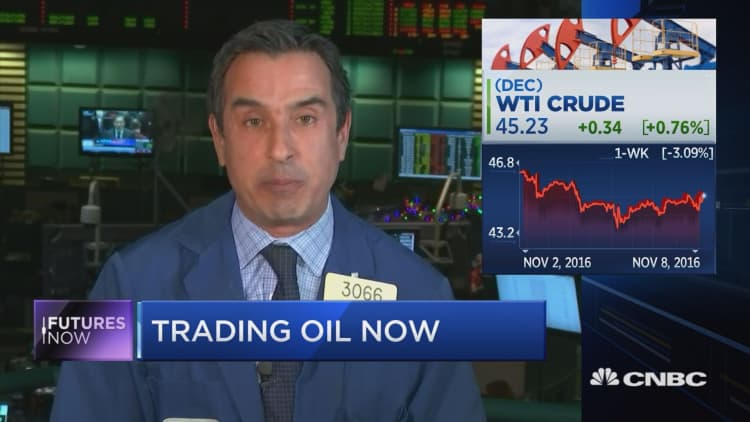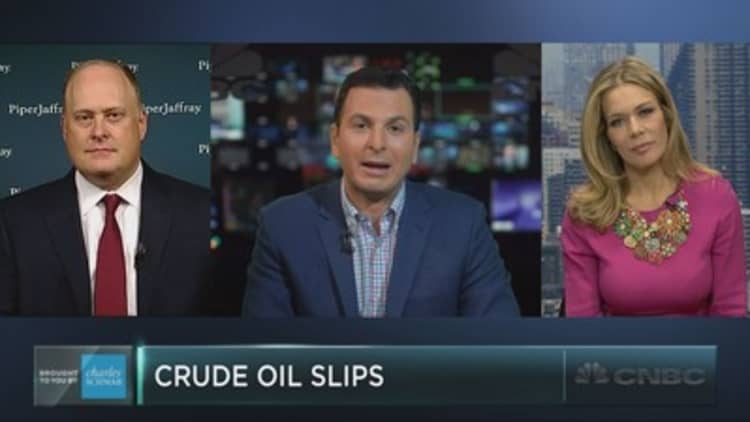Oil prices rose on Wednesday, as U.S. financial markets bounced back from a early Brexit-like slide that followed Donald Trump's surprise victory in the U.S. presidential election.
Crude had tumbled as much as 4 percent early in the session, in the immediate aftermath of the U.S. presidential election results. U.S. crude tumbled to near $43, a near two-month low.
The selloff was part of a broad-based market reaction where investors fled risky assets such as stocks and the dollar , which have since turned positive as well.
U.S. crude settled up 29 cents at $45.27, off a session low of $43.07.
Brent crude was up 31 cents, or .67 percent, at $46.35 a barrel by 2:41 p.m. ET (1741 GMT), after falling to $44.40, the lowest since Aug. 11.

Oil prices briefly tumbled after weekly government data showed another build in U.S. crude inventories, but eventually the market looked past it.
The Energy Information Administration said U.S. crude stockpiles rose 2.5 million barrels last week, a million more than analysts had forecast.
"The report is fairly neutral, and the market is accordingly having a muted response," said Matt Smith, director of commodity research at energy data provider ClipperData.
Oil prices remain at less than half of their level of mid-2014, pressured by excess supplies.
With Trump's win, the Organization of the Petroleum Exporting Countries (OPEC) face the prospect of increased U.S. oil output — a major bugbear for the 14-country oil-producing cartel — given his pledge to open all federal land and waters for fossil fuel exploration.
Oil analysts also say while Trump's victory raised concerns about future economic growth and oil demand, there were supportive factors for prices such as a potential shift in U.S. policy towards Iran.
"It remains to be seen whether U.S. President Trump will revoke the nuclear agreement with Iran that he has criticized so strongly," Commerzbank said in a note.
"If so, oil prices would presumably rise."
Trump has criticized the West's nuclear deal with Iran, an accord that has allowed Tehran to increase crude exports sharply this year. Iran said Trump should stay committed to the deal.

Oil prices are less than half of their level of mid-2014, pressured by excess supplies. Other analysts cited bearish impacts from the election result.
The election result could compound the supply-side headwinds that oil producers face with demand concerns, said Daniel Yergin, vice-chairman of analysis firm IHS Markit and author of The Prize, a well known history of the oil industry.
"The outcome of the U.S. election adds to the challenges for the oil exporters because it likely leads to weaker economic growth in an already fragile global economy," he said. "And that means additional pressure on oil demand."
In an attempt to boost prices, OPEC agreed in September to cut output, although investor doubts have grown that it will be able to implement the deal at its next meeting on Nov. 30.

